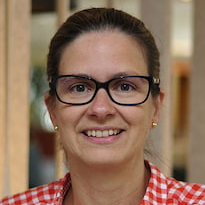Gene and Transcript Therapy for Musculoskeletal Tissue Healing
A special issue of Cells (ISSN 2073-4409).
Deadline for manuscript submissions: closed (15 September 2023) | Viewed by 346
Special Issue Editor
Interests: gene transfer; RNA transfer; stem cells; protein expression; musculoskeletal; tissue engineering
Special Issues, Collections and Topics in MDPI journals
Special Issue Information
Dear Colleagues,
Although gene therapy has its conceptual origins in the treatment of Mendelian disorders, it has potential applications in regenerative medicine. Gene therapy has been attempted in all tissues of the musculoskeletal system with pioneer work carried out for cartilage and bone tissue healing. Research in gene therapy for musculoskeletal tissue healing started in the 1990s and aimed to solve the known limitations of (recombinant) protein therapeutics. These limitations include, but are not limited to, adverse side effects and elevated costs along with modest clinical efficacy. Although gene therapy has shown great potential for tissue healing in regenerative medicine, several impediments jeopardize the implementation of this strategy. Examples of such obstacles are safety concerns, achieving efficient gene transfer, overcoming immune barriers, and obtaining the appropriate level and duration of transgene expression. Much research has been carried out to overcome these obstacles. New discoveries in this line of work are of great interest to this Special Issue. In addition, a new type of gene therapeutics has been discovered that uses mRNA instead of the traditionally used cDNA for gene transfer. mRNA is a new class of drug that can be used to express a therapeutic protein and, in contrast to cDNA, is safer and inexpensive. Among its advantages, mRNA immediately begins to express its encoded protein in the cytoplasm. The protein is expressed for a period, after which the RNA is degraded; moreover, there is no risk of genetic impediments, which is one of the concerns with DNA. Nevertheless, the successful application of mRNA for tissue healing in regenerative medicine relies on successfully reducing the immunogenicity of this molecule while increasing its stability upon administration. Much research is being carried out to further develop RNA therapeutics for musculoskeletal tissue healing. The next challenge is to translate gene and transcript (RNA) therapeutics into clinically expedient technologies for musculoskeletal tissue healing.
The aim of this Special Issue is to provide an overview of the current advances of gene therapy for tissue healing. We will focus on the tissues of the musculoskeletal system. Novel RNA-based approaches are especially welcome.
Prof. Dr. Elizabeth R. Balmayor
Guest Editor
Manuscript Submission Information
Manuscripts should be submitted online at www.mdpi.com by registering and logging in to this website. Once you are registered, click here to go to the submission form. Manuscripts can be submitted until the deadline. All submissions that pass pre-check are peer-reviewed. Accepted papers will be published continuously in the journal (as soon as accepted) and will be listed together on the special issue website. Research articles, review articles as well as short communications are invited. For planned papers, a title and short abstract (about 100 words) can be sent to the Editorial Office for announcement on this website.
Submitted manuscripts should not have been published previously, nor be under consideration for publication elsewhere (except conference proceedings papers). All manuscripts are thoroughly refereed through a single-blind peer-review process. A guide for authors and other relevant information for submission of manuscripts is available on the Instructions for Authors page. Cells is an international peer-reviewed open access semimonthly journal published by MDPI.
Please visit the Instructions for Authors page before submitting a manuscript. The Article Processing Charge (APC) for publication in this open access journal is 2700 CHF (Swiss Francs). Submitted papers should be well formatted and use good English. Authors may use MDPI's English editing service prior to publication or during author revisions.
Keywords
- gene therapy
- RNA therapeutics
- protein expression
- tissue healing
- musculoskeletal
- tissue interface






